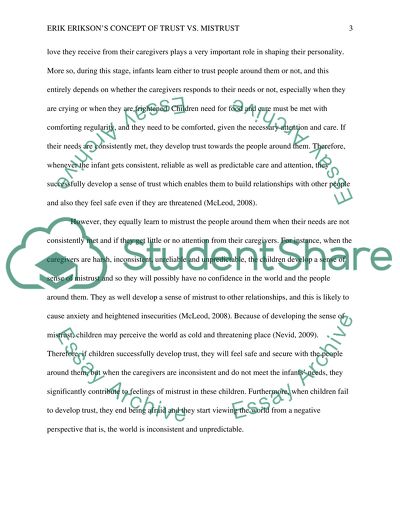Cite this document
(“Erik Eriksons Concept of Trust vs. Mistrust Research Paper”, n.d.)
Retrieved from https://studentshare.org/psychology/1495408-erik-eriksons-concept-of-trust-vs-mistrust
Retrieved from https://studentshare.org/psychology/1495408-erik-eriksons-concept-of-trust-vs-mistrust
(Erik Eriksons Concept of Trust Vs. Mistrust Research Paper)
https://studentshare.org/psychology/1495408-erik-eriksons-concept-of-trust-vs-mistrust.
https://studentshare.org/psychology/1495408-erik-eriksons-concept-of-trust-vs-mistrust.
“Erik Eriksons Concept of Trust Vs. Mistrust Research Paper”, n.d. https://studentshare.org/psychology/1495408-erik-eriksons-concept-of-trust-vs-mistrust.


